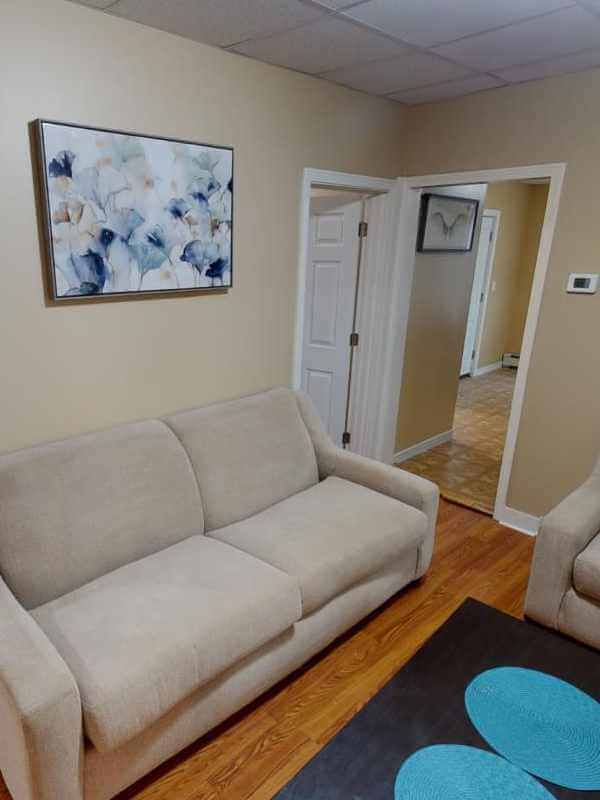A recovering individual can live in an Oxford House for as long as he or she does not drink alcohol, does not use illicit drugs, and pays an equal share of the house expenses. The average stay is a little over a year, but many residents stay three, four, or more years. Oxford House is a self-run, self-supported recovery house program for individuals recovering from a Substance Use Disorder (SUD), including an Opioid Use Disorder (OUD).
- The ideal number of members for an Oxford House is between 8 to 15 members.
- First, all decisions would be made democratically, with a group vote.
- Sometimes, home is not the best place to be, especially for those in recovery.
- The advantages of Oxford Houses include a strong sense of community, accountability, and mutual support, which are invaluable during addiction recovery.
- There are several resources to help with your search, including directories of licensed facilities, recommendations from treatment centers, and local recovery community networks.
How Do Oxford Houses Compare to Other Forms of Transitional Housing?
This not only helps those individuals to become more involved in AA or NA, and thereby reap greater individual benefits, but also helps to build strong bonds between local AA and NA groups and Oxford House. Repayment from those start-up loans assures the continuation of the revolving fund to enable other new houses to get started — just as repayment of loans to chapters permits the same resources to be used again and again. Starting new Houses through the mutual assistance of existing Oxford Houses is a tradition because each House was started with the help of existing Houses and tends to pass on to others that which they received.
Peer-support
- Some provide additional support services for specific populations, such as youth with opioid use disorders.
- Typically, costs range from a few hundred to several thousand dollars per month.
- The first Oxford House was established on May 28, 1975, in Silver Spring, Maryland, by Paul Molloy, who aimed to create a supportive living environment that encourages long-term sobriety.
- During the course of a year more than 4,000 veterans will live in an Oxford House.
Beds are provided in each house as well as other necessary furniture. Personal hygiene products and food are the responsibility of each member. For example, the landlord and phone company may require a security deposit and, while furnishings are generally donated, members will often have to rent a truck in order to pick them up. There may also be a need to buy more “staples” such as flour, sugar, coffee, etc. when a House starts up. Every Oxford House member attributes his sobriety to Alcoholics Anonymous and/or Narcotics Anonymous. Each Oxford House member, as an individual, Sobriety considers himself a member of AA and/or NA.

Gaba: Definition, Functions, Production, Release, role in Addiction and recovery
In this respect, they are similar to a college fraternity or sorority. However, if a majority of residents believe that any member has had a recurrence of use of alcohol or other illicit drugs, that person is immediately expelled. As financially self supporting facilities, there is an emphasis on mutual respect and helping others. Residents pay their own way and have to pay utility bills along with rent and other costs. Addictive behaviors are not accepted, of course, and the house operates democratically with occasional elections and frequent meetings.
Get Accredited Treatment Programs at Purpose
Many facilities have house managers or coordinators who oversee daily operations and ensure that residents adhere to the established guidelines. Surveillance cameras and security measures may also be employed depending on the location and nature of the housing. Peer recovery offers an opportunity for continuous learning and personal growth. Peers can share insights, coping strategies, and practical tips for navigating the ups and downs of recovery.
Oxford House, Inc. litigated the issue and in 1995 the United States Supreme Court considered the issue in City of Edmonds, WA v. Oxford House, Inc. et. Since then courts have found that the same protection applies with respect to fire safety standards and rates charged property owners for property insurance coverage. In fact, Oxford Houses must be treated the same as ordinary families. Mr. Molloy and the other residents devised the basic rules of self-government that have shaped Oxford House ever since.

However, the members of Oxford House have found only by being active in AA and/or NA have they found comfortable, long-term sobriety — for themselves and what is an oxford house the Oxford House in which they live. Misguided leaders can create dependency and usurp self-responsibility. Oxford House should rely on democratically-chosen leaders, but the leaders must always be but trusted servants. To discourage an excessive dependence on leaders, it is a principle of Oxford House that no member should serve in the same office for a continuous period of longer than six months.
- Each house is self-run and self-supported following a standardized system of democratic operation.
- The article highlights the success of these houses, where recovering individuals work together, abide by simple rules, and maintain a drug-free environment.
- The Oxford House model requires that the property be suitable for creating a supportive living environment for individuals in recovery.
- Those officers will hold a variety of different roles, including managing finances, enforcing house rules, and controlling admissions.
- In 1987, the late Bill Spillane, Ph. D., who had retired from NIDA and was teaching at Catholic University School of Social Work in Washington, D.C.
What is the Operational Structure and House Rules of Halfway Houses?

The VSL and Vanderburgh House ™ brands are used with permission by VSL Chartered Operators. Jason and Ferrari randomized 150 individuals to live in either an Oxford House or (receive community-based aftercare services (usual Care)). Hi my name is Holly Ricketts and I am a recovering meth addict, I used drugs for 20 plus years.I have had some life changes and feel like I need a safe place with support of people on the same journey. Some sober living homes are covered by private insurance, government funding or Medicaid.
0
